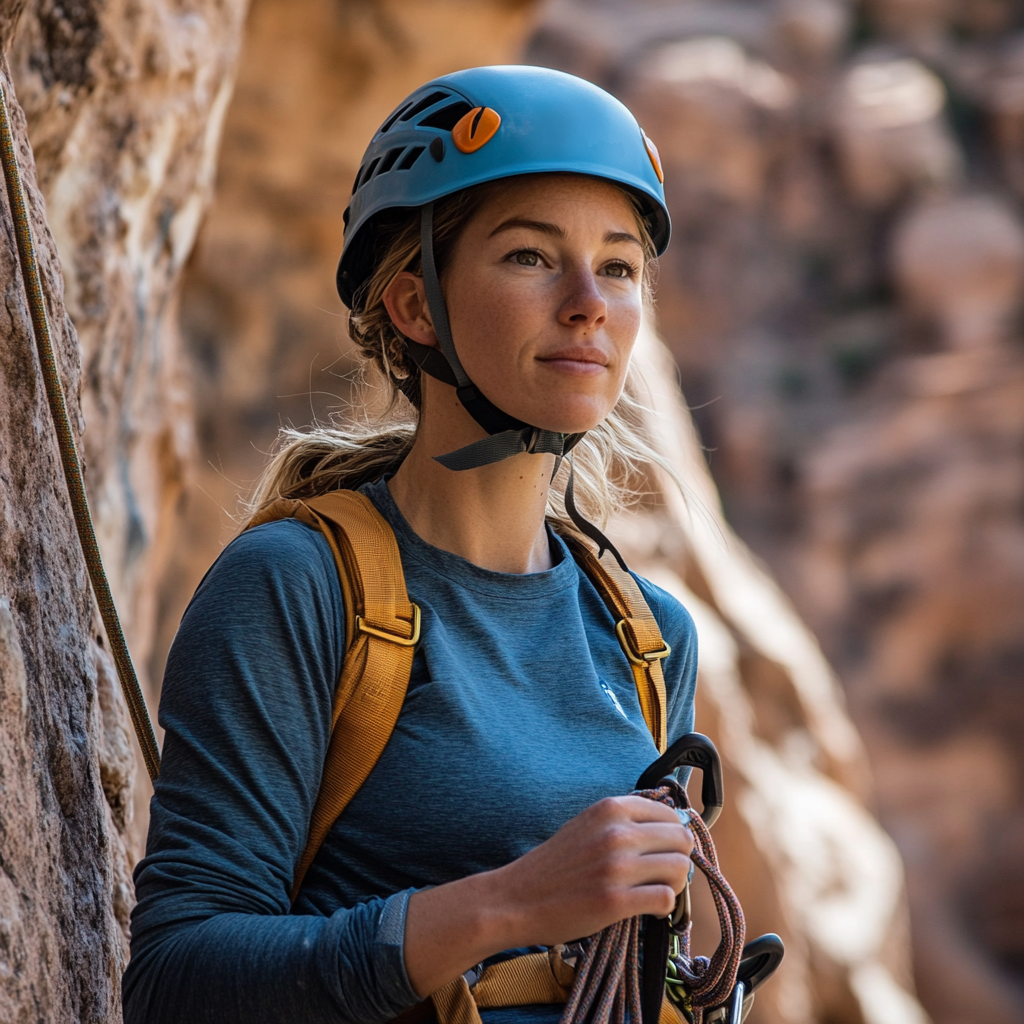Rock climbing is an exhilarating sport that combines physical strength, mental focus, and a deep connection with nature. Whether you’re a complete beginner or an experienced climber looking to tackle new challenges, the question often arises: Should you hire a rock climbing guide, or can you rely on friends to show you the ropes? This article explores when it makes sense to hire a guide and compares the benefits of learning from a professional versus a friend.
When to Consider Hiring a Rock Climbing Guide
- When You’re New to Climbing If you’re just starting out, a professional guide can provide a solid foundation. Guides are trained to teach the basics of climbing, including knots, belaying, movement techniques, and safety protocols. They can introduce you to climbing in a structured and progressive way, reducing the learning curve and helping you build confidence.
- When You’re Climbing in a New Area Exploring a new climbing destination can be thrilling, but it also comes with unknowns. A local guide can offer valuable insights into the area’s routes, rock quality, and conditions. They can help you navigate the complexities of new terrain, ensuring you make the most of your climbing trip without unnecessary risks.
- When You Want to Improve Specific Skills Whether you want to lead climb, place gear, or master advanced techniques like multi-pitch climbing, a guide can offer tailored instruction to help you achieve your goals. Guides can assess your current abilities and create a personalized training plan, providing targeted feedback to help you progress more quickly and safely.
- When Safety is a Top Priority Climbing inherently involves risks, and while learning from friends can be valuable, it’s important to recognize that not everyone is equipped to teach safely. Guides are certified professionals who adhere to strict safety standards. They are trained to manage risks, make sound decisions in critical situations, and ensure that you are climbing within your ability level.
- When You Want to Maximize Your Experience A climbing guide’s job is to make your experience as enriching and enjoyable as possible. Whether it’s finding the best routes for your skill level, teaching you efficient techniques, or sharing knowledge about the local environment, a guide can help you get the most out of your climbing day.
Learning from a Friend vs. Learning from a Professional Guide: A Comparison
| Aspect | Learning from a Friend | Learning from a Professional Guide |
|---|---|---|
| Cost | Usually free or low-cost | Professional fees, but varies based on location and service |
| Experience | Depends on the friend’s experience and knowledge | Extensive training and certifications |
| Safety | May lack formal safety training | Adheres to strict safety standards |
| Teaching Quality | Informal and may vary in clarity and effectiveness | Structured, progressive, and tailored to your needs |
| Availability | Dependent on your friend’s schedule | Scheduled around your needs |
| Local Knowledge | May have some knowledge of local crags | In-depth knowledge of routes, conditions, and best practices |
| Skill Development | Focused on casual climbing | Targeted skill development and progression |
| Adaptability | May not be equipped to handle unexpected situations | Trained to adapt to changing conditions and challenges |
| Pace of Learning | Informal, can be slow or inconsistent | Faster, more efficient learning with immediate feedback |
| Legal Responsibility | No formal responsibility | Guides often carry liability insurance |
Advantages of Learning from a Friend
- Cost-Effective: Learning from a friend is usually free or low-cost, making it an appealing option for those on a budget.
- Casual and Fun: Climbing with a friend can be more relaxed, allowing for a laid-back learning environment.
- Shared Experience: Friends often have a shared history, which can make the experience more enjoyable and personalized.
Advantages of Learning from a Professional Guide
- Expert Instruction: Guides are certified professionals with comprehensive training, ensuring you receive accurate and effective instruction.
- Safety First: Guides prioritize safety above all else, minimizing risks and ensuring you learn correct techniques from the start.
- Faster Progression: With structured lessons and immediate feedback, you’re likely to progress more quickly under a guide’s supervision.
- Tailored Experience: Guides can customize the experience to your skill level and goals, providing a more focused and productive learning environment.
Conclusion
Hiring a rock climbing guide can be a valuable investment, particularly if you’re new to the sport, exploring unfamiliar terrain, or looking to improve specific skills. While learning from a friend can be a cost-effective and enjoyable way to get started, a professional guide offers expertise, safety, and structured learning that can significantly enhance your climbing experience. Ultimately, the decision depends on your goals, budget, and how quickly you want to progress in the sport.

